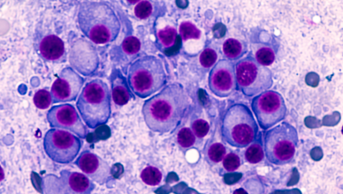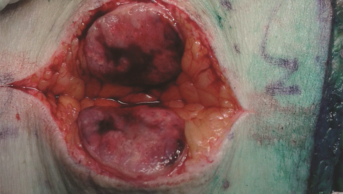
Shutterstock.com
Cancer charities and the pharmaceutical industry have expressed concerns over the way cancer medicines are appraised after a revised process for assessing drugs available through the Cancer Drugs Fund (CDF) was published by NHS England on 12 November 2014.
The national CDF panel, which includes patient representatives, oncologists and pharmacists, will meet in December 2014 to re-evaluate more than 40 drug indications already funded through the CDF and to decide whether to fund ten new drugs.
The revised procedures – which were approved at an NHS England board meeting on 6 November 2014 – aim to ensure more effective and promising drugs will be prioritised and made available to patients, but could lead to some cancer drugs being removed from the list. However, CDF chairman Peter Clark said in August 2014 that patients already being treated with a drug that is removed would continue to receive treatment.
The CDF — set up in 2010 to fund access to cancer drugs that have not been approved by the National Institute for Health and Care Excellence (NICE) for NHS use — was in danger of a “substantial overspend” in future, despite an injection of an additional £160m, the board learned.
A paper from Sir Bruce Keogh, NHS England national medical director, proposed measures to reduce the products and indications on the CDF to bring the projected spend within budget by re-evaluating the threshold of clinical benefit and applying a price criterion. This would provide “greater confidence that NHS funds are being spent on products and indications that deliver more clinical benefit per unit cost”, he wrote.
Cancer charities have raised concerns about the revised procedures. Caitlin Palframan, senior policy manager at Breakthrough Breast Cancer, says it is “deeply concerned” about the potential loss of effective breast cancer treatments as a result of their high price. She is calling on all political parties to commit to finding a long-term, UK-wide solution to the “ongoing problem of access to life-extending drugs” through a new system of drug pricing and evaluation.
Owen Sharp, chief executive of Prostate Cancer UK, says the CDF has been “brought to the brink” by a failed drug appraisal system. “A long-term solution is urgently needed that delivers an overhaul of the way new cancer drugs are appraised,” he says. “To work, there must be greater collaboration with the pharmaceutical industry to develop measures that combat the overpricing of new cancer drugs and make them affordable for the NHS.”
The pharmaceutical industry has also expressed reservations. In a statement, Paul Catchpole, the Association of the British Pharmaceutical Industry’s (ABPI) director of value and access, said the re-evaluation process was an “alternative and parallel” one that would not have been necessary if NICE were to review how it evaluated cancer medicines as part of more fundamental reforms. He said the proposed mechanism was “crude” and could lead to NHS patients being denied access to CDF medicines that provide significant health benefit.
“The ABPI has made it clear that it could not support such an approach and that any further development of a value assessment process for CDF medicines should be undertaken by NICE,” said Catchpole. “What we need now is a clear plan with a set of agreed timelines setting out how we will achieve this.”
However, Steve Williamson, a member of the national CDF panel and a consultant cancer pharmacist at Northumbria NHS Trust and North Cumbria University Hospitals NHS Trust, explains that the new procedure allows CDF panel members to take into account clinical value and cost for the first time. He welcomes the fact that manufacturers will be able to submit reduced prices, most likely through patient access schemes or through confidential discounts.
Williamson dismissed claims that life-saving medicines would be removed. “All the drugs up for consideration of removal from the CDF list extend survival in advanced cancer, i.e. they offer the chance of prolonged life, but unfortunately none are good enough to be truly life-saving.”


